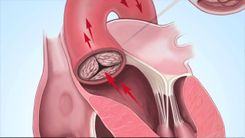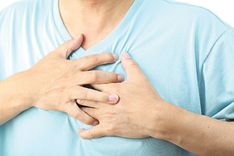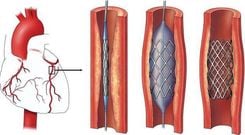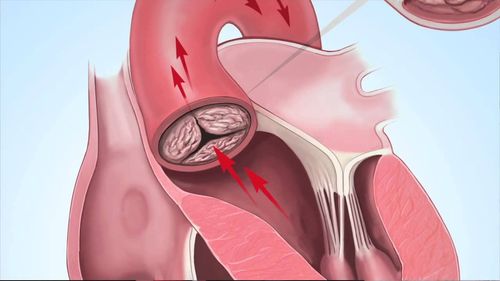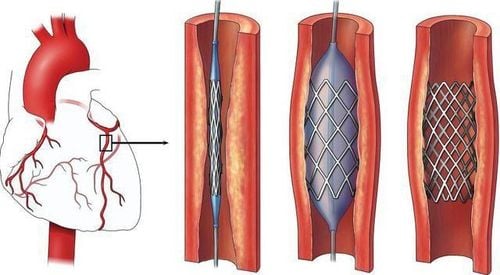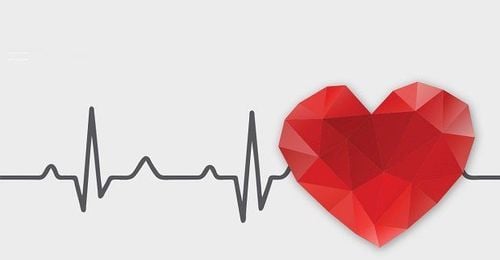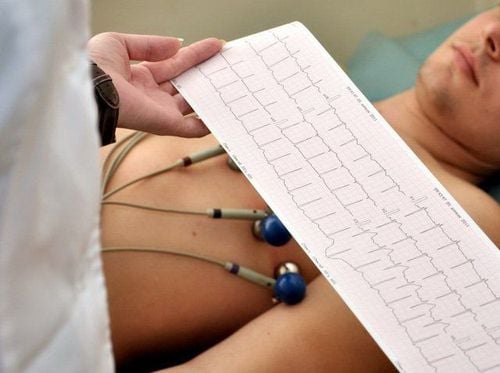Heart rate irregularities, such as faster, slower, or uneven beats, can occur due to factors like stress, dehydration, heat, deep sleep,... In such cases, you can apply some remedies to stabilize your heart rhythm at home. Let's explore what heart arrhythmia is and how to manage it effectively.
1. What is heart arrhythmia?
A normal heart rhythm originates from the sinus node and occurs in a regular rhythmic cycle. Resting heart rates typically range from 60–100 beats per minute. Arrhythmia occurs when there is an electrical disturbance in the heart, causing the heart to beat too fast (>100 beats per minute), too slow (<60 beats per minute), or irregularly.
Patients with arrhythmia may experience no symptoms or feel palpitations or rapid heartbeats,... However, in some cases, arrhythmia can progress to severe complications, posing life-threatening risks.
Arrhythmias can affect individuals of any age at any time. However, the risk is higher in the following groups: individuals over 60 years old; those with hypertension, coronary artery disease, heart failure, valvular heart disease, or sleep apnea; individuals with a history of open-heart surgery, thyroid disorders, diabetes, chronic lung disease, infections, or severe systemic illnesses at over 60 years old; those who consume alcohol, tobacco or stimulants,...;
2. Remedies for managing heart arrhythmia at home
Arrhythmia can be treated through medications, catheter ablation, pacemaker implantation, implantable defibrillators,... Besides medical treatments, the following home remedies may help stabilize the heart rate and improve cardiovascular health.
2.1. Managing bradycardia (slow heart rate)
Treatment for bradycardia varies based on the individual and may include temporary or permanent pacemaker implantation,...
For bradycardia causing hemodynamic disturbances: Emergency medications (atropine, adrenalin,...) may be administered, followed by temporary pacemaker insertion.
Chronic bradycardia: often requires permanent pacemaker implantation.
In case of uncertain diagnoses with mild symptoms, oral theophylline may be considered.
2.2. Managing tachycardia (fast heart rate)
Heart rate increases can be triggered by stress, fear, dehydration, or other factors. The following home remedies can help reduce tachycardia:
- Pause activities: If your heart starts racing suddenly, stop what you're doing and sit or lie down to rest, avoid exertion as it can worsen tachycardia.
- Stay hydrated: Dehydration reduces blood circulation, making the heart work harder, which increases heart rate and blood pressure. In addition, dehydration is often accompanied by electrolyte imbalance, which can cause the heart to beat faster. Drink adequate water daily, even when not thirsty, and take small sips.
- Electrolyte supplementation: Electrolytes like potassium, calcium, magnesium, and sodium are vital for heart function. Imbalances can lead to arrhythmias. Therefore, replenishing enough water and electrolytes is a simple and effective way to manage arrhythmia at home. Foods rich in potassium (bananas, avocados, coconut water, oranges,...), magnesium (almonds, oats, cashews,...), and sodium (milk production, meat, seafood,...) can help maintain heart rhythm. Avoid using salt to boost sodium levels, as it may increase blood pressure.
- Cool the body: High temperatures force the heart to pump blood to the skin harder, helping to cool the body and secrete sweat, thereby increasing the heart rate. As a result, wearing light clothing, staying in shaded areas, eating green vegetables, and drinking plenty of water to cool down,...are remedies to reduce heartbeat at home.
- Exercise regularly: Individuals with arrhythmia should exercise regularly with gentle exercises such as cycling, yoga, walking, swimming, aerobics,... to stabilize their heart rhythm.
- Avoid stimulants: Using stimulants, alcohol, tobacco causes the body to secrete hormones that constrict blood vessels, increase oxygen needs and raise the heart rate. Additionally, alcohol can also trigger dangerous episodes of rapid heart rate. Therefore, avoiding these substances is a key strategy to manage arrhythmia at home.
- Coughing: Coughing can help reset the heart's rhythm. If you are nervous, anxious and your heat is beating fast, try coughing gently to put pressure on the chest, stimulate the vagus nerve, which can slow the heart rate.
- Valsalva Maneuver: Inhale deeply, close your mouth, pinch your nose, and hold your breath for 5–10 seconds or more before exhaling slowly. This technique may initially raise the heart rate but will gradually lower it. Avoid this if you have coronary artery disease, congenital heart defects, or a history of stroke or heart attack.
- Relaxing: This is an effective way to treat arrhythmia at home. When your heart beats fast, you can lie down or sit down, relax, and breathe deeply to slow down the heart rate. Anxiety and stress are significant triggers for arrhythmia. Therefore, to prevent this condition, stay optimistic, calm your mind with positive and comfortable things. Practice deep breathing or meditation are helpful to manage arrhythmia at home.
- Carotid Massage: Gently massage the carotid artery can help slow down the heart rate. The carotid arteries is located on either side of the neck, close to the vagus nerves. Gently massaging the carotid arteries for 5–10 seconds to stimulate the vagus nerve and lower the heart rate. However, do not massage or press too hard on the carotid artery, only massage one side, do not massage if you carotid atherosclerosis or a history of myocardial infarction, stroke, ventricular tachycardia, or ventricular fibrillation in the past 3 months.
- Avoid foods that increase heart rate: Foods that increase heart rate, such as fermented foods (such as pickled eggplant, pickled cucumbers,...), carbonated drinks, caffeine, cocaine, alcohol, etc. When arrhythmia occurs, stay away or limit the use of these foods. In addition, limit salt intake, as excessive sodium can worsen hypertension. You should supplement foods such as fruits, vegetables, whole grains, milk, sea fish, etc. which are good for cardiovascular health and help stabilize heart rate.
If these remedies do not effectively manage your symptoms at home, seek medical evaluation promptly. Your doctor may prescribe medications like beta-blockers, calcium channel blockers, or potassium and sodium channel inhibitors to regulate your heart rhythm. Always take medications as prescribed to avoid adverse effects and complications.
To arrange an appointment, please call HOTLINE or make your reservation directly HERE. You may also download the MyVinmec app to schedule appointments faster and manage your reservations more conveniently.
Reference source: www.vinmec.com.
